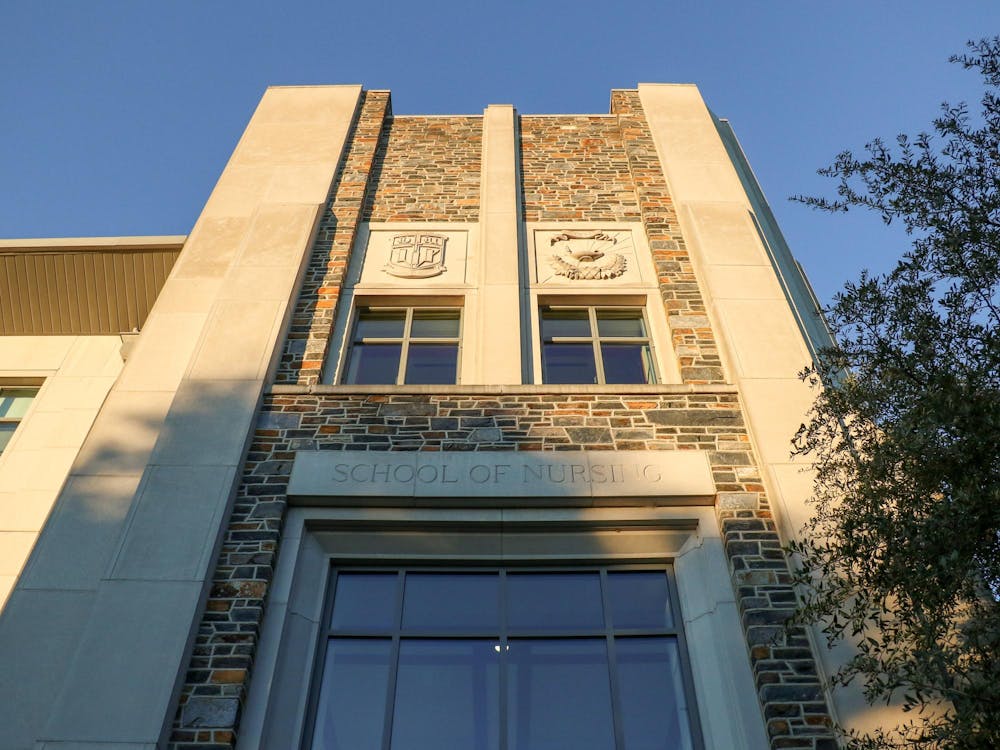The School of Nursing and Pratt School of Engineering recently launched a collaborative research program seeking to fund intersectional, innovative projects with the potential to transform health care.
Sharron Docherty, vice dean for research and associate professor in the School of Nursing, was instrumental in initiating the program, which aims to connect engineering and nursing faculty approaching similar issues from across their disciplines.
Docherty emphasized that integrating ideas from both disciplines could help produce research that progresses quickly from problem identification to solution implementation.
“We thought one of the first ways to start [a partnership] might be if we offered a funding competition where we would have people develop a collaborative relationship with a scientist in Pratt … and then write a proposal for a study that they would like to do that we could fund,” she said. “One of the things we realized, though, is that we had to help them build these collaborations in the first place.”
So the administrations held what they termed a “collaboratorium,” bringing faculty from both schools together to present their ideas and identify areas of overlap.
The collaboration resulted in $75,000 awards to four pilot projects, each led by faculty from both schools with an expected timeline of 18 months.
The first pilot project uses a wireless device to support enhanced communication needs of those with ALS. Led by Xiaoyue Ni, assistant professor of the Thomas Lord department of mechanical engineering and materials science, and Donald Bailey, associate professor in the School of Nursing, the researchers are studying the effectiveness of the device, which sits at the base of the throat and helps improve the speech of ALS patients, in improving their ability to interact with caretakers and in social settings.
The second project aims to use nurse-guided telerobotics to progress virtual care. A collaboration between Ryan Shaw, associate professor in the School of Nursing, and Boyuan Chen, assistant professor of the Thomas Lord department of mechanical engineering and materials science, seeks to recruit nurses to help train AI models that teach robots how to safely perform some basic tasks. Those robots can then perform physical tasks for patients, supplementing telehealth care.
Marta Zaniolo, assistant professor of civil and environmental engineering, and Devon Noonan, associate professor in the School of Nursing, aim to anticipate the impacts of future heat waves on rural mental health and substance abuse in the third project. The professors are developing an AI model to predict heat waves while exploring nurse-led interventions for rural communities in eastern North Carolina.
They also plan to incorporate feedback from a community advisory board before presenting research-backed solutions, ensuring that those most impacted by their work have a say in the final policy outcomes.
The final project, led by Ni and Darina Petrovsky, assistant professor in the School of Nursing, examines the effectiveness of a wearable sensor for detecting communication issues between dementia patients and their caregivers, with the end goal of improving that communication and thus reducing patients’ social isolation.
Docherty believes the inter-school collaboration will help raise the profile of nursing science and open up new opportunities for members of the field.
“To me, what’s most exciting about this project is the opportunity to partner with a very well known and very well respected scientific discipline and profession that is engineering and have them say, ‘Wow, there is something different about the questions that nurses ask and their approach to conducting scientific investigations,” she said. “We’re noticing that, more and more, we’re getting invited by other departments across Duke to be on their interdisciplinary research teams. That’s the future of science … it has to be interdisciplinary.”
Docherty acknowledged that challenges exist due to the differing approaches and methodologies of nurses and engineers, noting that “both professions speak a slightly different language.” Yet, she believes that navigating these differences ultimately enhances the depth of their research.
In the long term, the goals of funding such projects include building the foundation for a grant proposal to establish a new research center, as well as exploring avenues for partnerships with institutions such as the National Institutes of Health and National Science Foundation.
But Docherty underscored that success for the program will extend beyond traditional research metrics like grants acquired and articles published, centering instead around developing solutions that meet the specific needs of the populations Duke serves.
Get The Chronicle straight to your inbox
Sign up for our weekly newsletter. Cancel at any time.
Srilakshmi Venkatesan is a Trinity first-year and a staff reporter for the news department.

